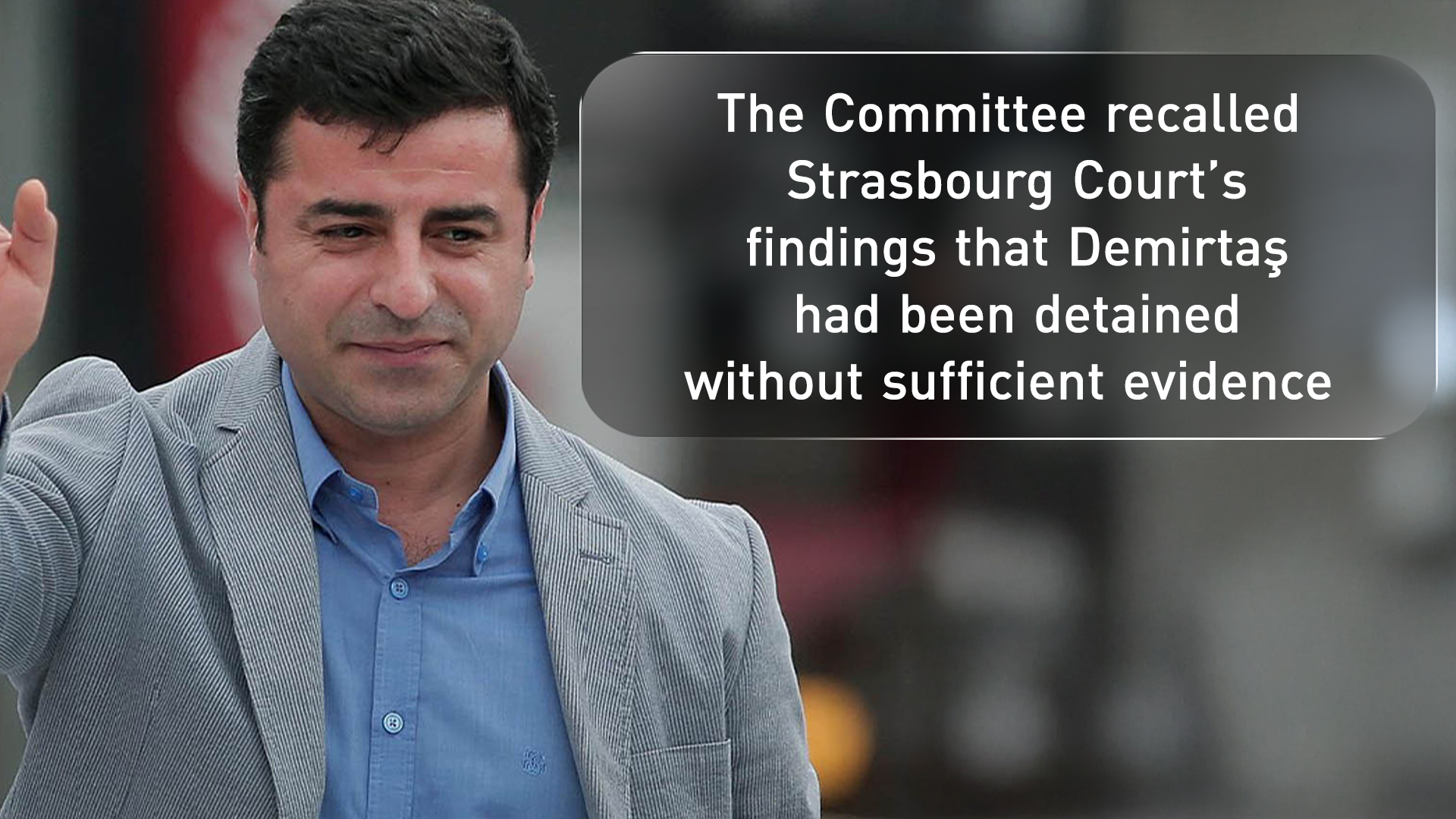Council of Europe Supervises Turkey’s Compliance with Demirtaş Case Rulings
The Committee recalled the Strasbourg Court’s findings that Demirtaş and other elected parliamentarians had been detained without sufficient evidence, emphasizing that these detentions were politically motivated and in violation of the rights to freedom of expression and political representation.

ERBIL (Kurdistan24) – The Committee of Ministers of the Council of Europe, at its 1537th meeting held from September 15 to 17, reviewed Turkey’s implementation of the European Court of Human Rights’ (ECHR) rulings in the case of former Peoples’ Democratic Party (HDP) co-chair Selahattin Demirtaş and related cases.
In its statement, the Committee recalled the Strasbourg Court’s findings that Demirtaş and other elected parliamentarians had been detained without sufficient evidence, emphasizing that these detentions were politically motivated and in violation of the rights to freedom of expression and political representation. The ministers underscored Turkey’s obligation to fully implement the Court’s rulings, which include securing the immediate release of Demirtaş and addressing the broader issue of politically motivated detentions.
Demirtaş, one of Turkey’s most prominent Kurdish politicians and a former presidential candidate, was first detained in November 2016 amid a sweeping crackdown following a failed coup attempt earlier that year. Alongside dozens of HDP lawmakers and mayors, he was charged with terrorism-related offenses, which he and international observers have consistently rejected as politically driven.
In December 2020, the Grand Chamber of the ECHR ruled that Demirtaş’s prolonged pre-trial detention pursued the “ulterior purpose” of stifling pluralism and limiting political debate in Turkey, ordering his immediate release. Despite the ruling, Turkish authorities have continued to hold him in prison under different charges, drawing widespread criticism from European institutions, human rights organizations, and Western governments.
The Council of Europe, of which Turkey is a founding member, has repeatedly urged Ankara to comply with ECHR judgments, stressing that non-compliance undermines the rule of law and the credibility of the Convention system. In 2022, the Council of Europe even initiated infringement proceedings against Turkey for failing to implement the Demirtaş and Osman Kavala rulings, a rare measure that reflects the seriousness of the violations.
The continued supervision of the case at the ministerial level highlights the high political and legal significance of Turkey’s obligations. The Committee of Ministers is expected to maintain pressure on Ankara until concrete steps are taken to align its judicial practices with European human rights standards.
The Committee of Ministers’ ongoing supervision underscores the urgency of Turkey’s compliance with international human rights standards. Failure to address these concerns could result in further legal and political consequences, potentially damaging Turkey’s standing within the Council of Europe and the broader international community.